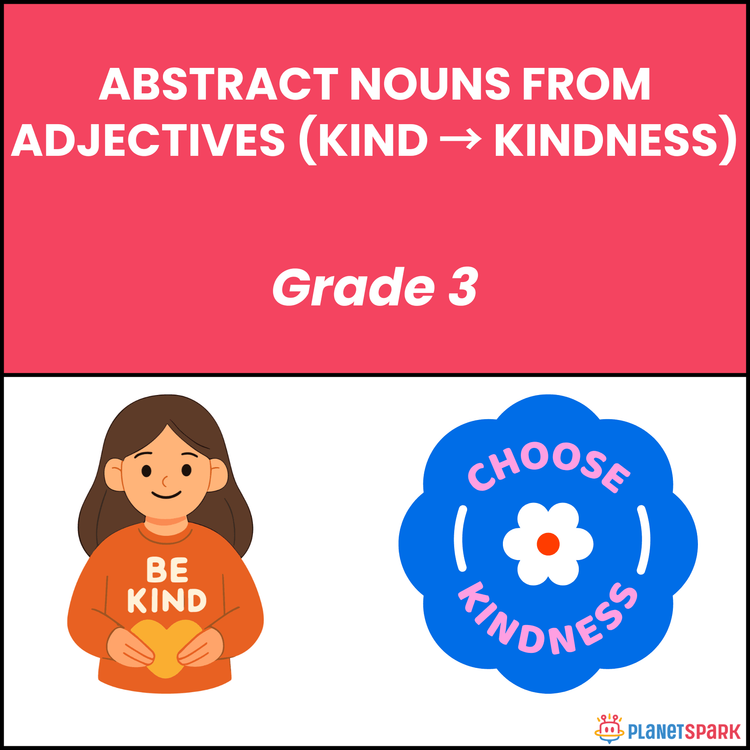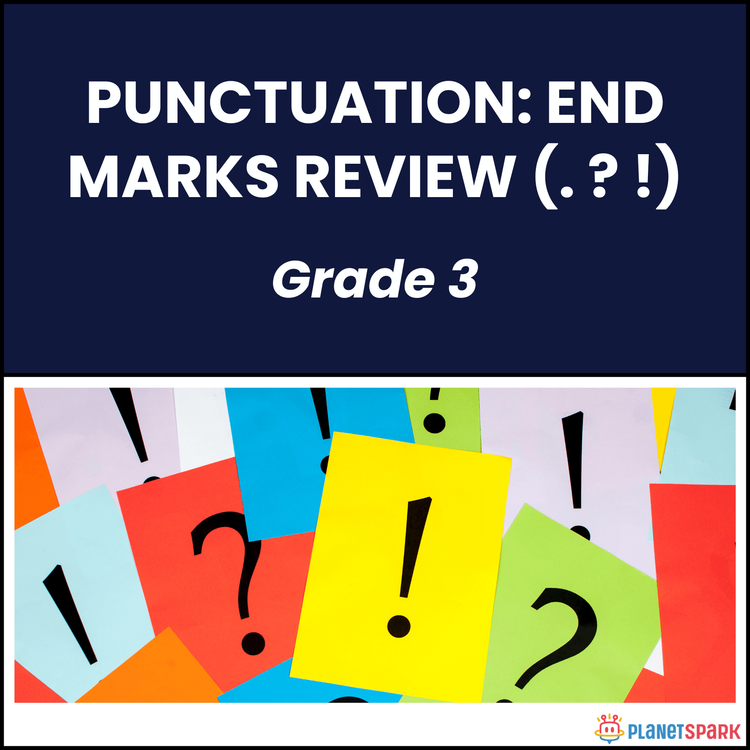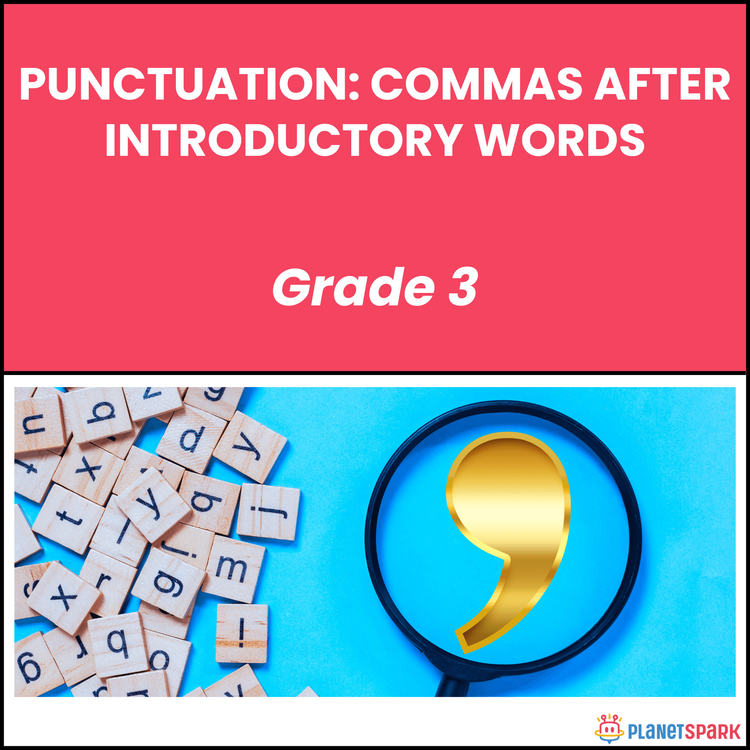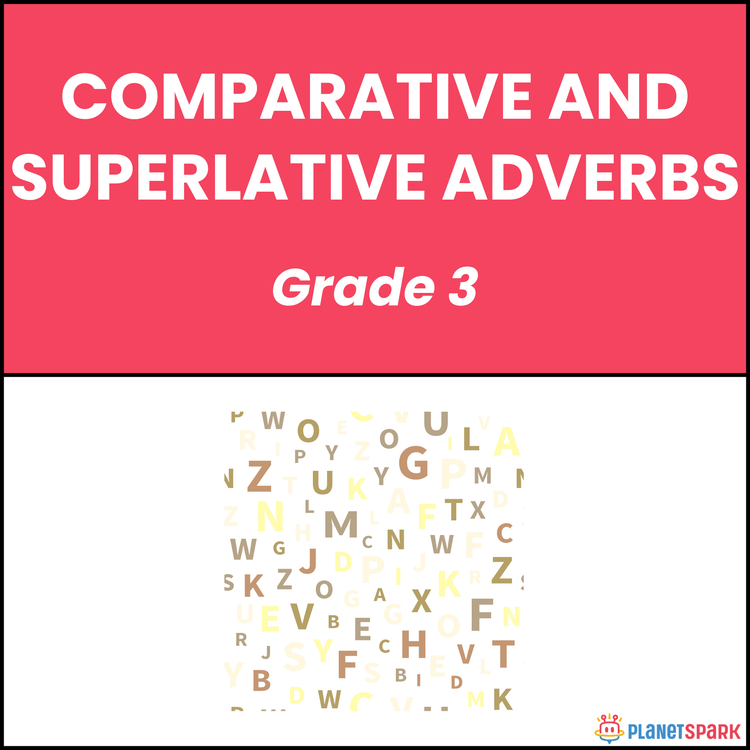Mega Bundle: 50 Class 3 Reading Comprehensions
EnglishClass 3English GrammarFree DownloadPDF
Shafaque Omar ShamimVisit Profile
An educator with over 4 years of experience in teaching, teacher training, and curriculum design. As a Teach for India alum, my core values are rooted in empathy, embracing diversity, and a passion for curriculum innovation.
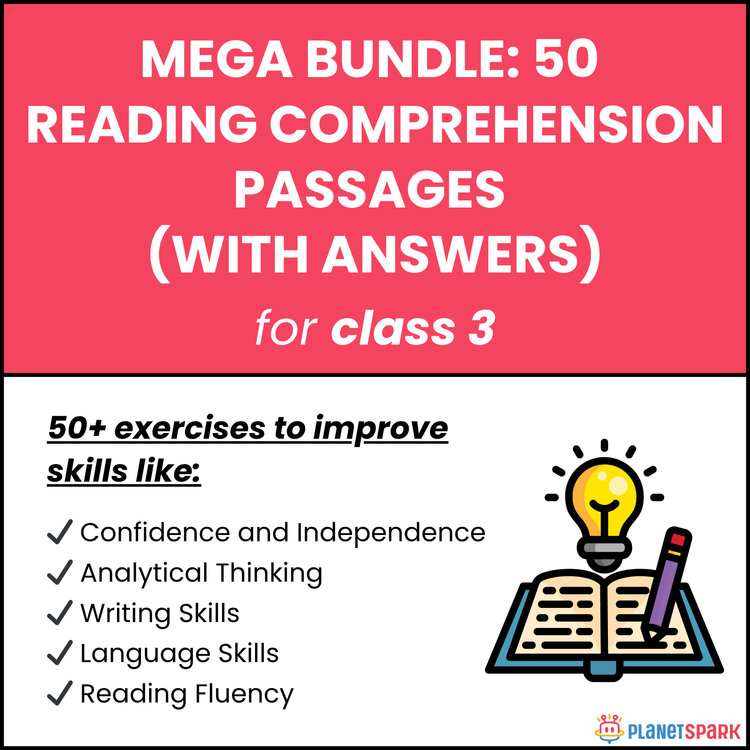

Mega Bundle: 50 Class 3 Reading Comprehensions
EnglishClass 3English GrammarFree DownloadPDF
Shafaque Omar ShamimVisit Profile
An educator with over 4 years of experience in teaching, teacher training, and curriculum design. As a Teach for India alum, my core values are rooted in empathy, embracing diversity, and a passion for curriculum innovation.
Read, Think, Answer: 50 Comprehension Passages for Class 3
This mega bundle of 50 reading comprehension worksheets is specially designed for Class 3 learners. Each passage is paired with age-appropriate questions to boost reading fluency, vocabulary, and critical thinking. With fun stories and short nonfiction passages, students practice finding information, making inferences, and answering in different formats.
Why Comprehension Practice Matters in Class 3?
This bundle helps students:
1. Read with understanding and identify key details.
2. Strengthen written expression through short and long answer formats.
3. Expand vocabulary and develop inferential thinking.
What’s Inside This 50-Passage Bundle?
Carefully curated mix of fiction, real-life, and thematic reading:
📘 Exercises 1–5 – Rearranging Sentences
Kids read a story and rearrange events in the correct order to improve sequencing skills.
✏️ Exercises 6–15 – One-Word Answers
Stories like *The Lost Puppy* and *The Snowman* help learners answer short factual questions using single keywords.
🧠 Exercises 16–25 – Multiple Choice Questions
Passages like *Tom’s Birthday Surprise* and *Visit to the Zoo* offer 4-option MCQs for comprehension checking.
📝 Exercises 26–30 – Short Answer Type Questions
Questions based on simple narratives help students answer in complete sentences.
🔍 Exercises 31–40 – Find Antonyms
Children read and extract opposite words from the passage, building vocabulary skills.
🌟 Exercises 41–50 – Find Synonyms
Passages on science and the world (e.g., *Volcanoes*, *Solar System*, *Clean Energy*) challenge learners to find similar-meaning words from context.
✅ Sample Answer Key
Exercise 1 – Rearranged: B → A → D → C
Exercise 2 – Rearranged: B → C → A → D
Exercise 3 – Rearranged: A → B → D → C
Exercise 4 – Rearranged: D → B → A → C
Exercise 5 – Rearranged: D → B → C → A
Exercise 6 –
1. What fruit did the monkey love? → Mango
2. Who became his friend? → Crocodile
3. What did the monkey share? → Mangoes
Exercise 7 –
1. What was the occasion? → Birthday
2. Where did Neha wear the shoes? → School
3. How did Neha feel? → Happy
Exercise 8 –
1. Where did Mili go? → Fair
2. What did she buy? → Balloons
3. How did she feel? → Excited
Exercise 9 –
1. Where did the dog live? → Street
2. What did Ria give the dog? → Biscuit
3. How did the dog feel? → Happy
Exercise 10 –
1. What did they use for his nose? → Carrot
2. What were the eyes made of? → Pebbles
3. What is the snowman wearing? → Hat
Exercise 11 –
1. Who gave the gift? → Aunt
2. What was the gift? → Book
3. How did you feel? → Grateful
Exercise 12 –
1. What did Maya drop? → Ice cream
2. How did she feel? → Sad
3. Who gave her another one? → Vendor
Exercise 13 –
1. What did Arjun draw? → Robot
2. What did he use? → Crayons
3. Where did he stick it? → Wall
Exercise 14 –
1. Who was calling the boy? → Mother
2. What was the boy doing? → Sleeping
3. What did the mother say? → Wake up
Exercise 15 –
1. Who was sick? → Grandmother
2. What did Asha do? → Made soup
3. How did Grandmother feel? → Better
Exercise 16 –
1. What did Rahul forget? → Homework
2. What did the teacher say? → Bring it tomorrow
3. How did Rahul feel? → Worried
Exercise 17 –
1. Where was the puppy? → Near the school gate
2. What did the children do? → Gave biscuits
3. How did the puppy respond? → Wagged tail
Exercise 18 –
1. Where did the cat climb? → Tree
2. Who called the fireman? → Neighbors
3. What did the fireman do? → Rescued cat
Exercise 19 –
1. What did Sita plant? → Rose
2. What did she water it with? → Can
3. What happened later? → Flower bloomed
Exercise 20 –
1. What was the mouse looking for? → Cheese
2. Where did he find it? → Kitchen
3. Who scared him? → Cat
Exercise 21 –
1. Where did they go? → Beach
2. What did they collect? → Shells
3. What did they build? → Sandcastle
Exercise 22 –
1. Who was crying? → Baby
2. What did the mother do? → Sang lullaby
3. What did the baby do? → Slept
Exercise 23 –
1. Who wore new glasses? → Papa
2. What did he do? → Read paper
3. How did he feel? → Happy
Exercise 24 –
1. Where was the book? → Under sofa
2. Who found it? → Brother
3. What was it about? → Dinosaurs
Exercise 25 –
1. Who fell down? → Tara
2. Who helped her? → Friend
3. What did the teacher say? → Be careful
Exercise 26 –
1. What did Sam pack? → Bag
2. Where was he going? → Picnic
3. What did he forget? → Water bottle
Exercise 27 –
1. Who painted the wall? → Ali
2. What color? → Blue
3. What did his sister say? → Beautiful
Exercise 28 –
1. What did Gita see? → Butterfly
2. What did it do? → Sat on flower
3. How did she feel? → Amazed
Exercise 29 –
1. What did they eat? → Pizza
2. Who baked it? → Mother
3. What was the flavor? → Cheese
Exercise 30 –
1. What game did they play? → Hide and Seek
2. Who won? → Ramesh
3. What did they say? → Let’s play again
Exercise 31 –
1. What gift did Asha get? → Doll
2. Who gave it? → Grandma
3. What color was it? → Pink
Exercise 32 – Antonyms:
dry → wet, few → many, short → tall, cold → hot
Exercise 33 – Synonyms:
big → large, smart → clever, happy → joyful, jump → hop
Exercise 34 –
1. Complete: sweet, sweeter, ______ → Sweetest
2. Fill in: tall, ______, tallest → Taller
3. Spot error: good, gooder, goodest → Correct: good, better, best
Exercise 35 –
1. Common noun: dog
2. Proper noun: Rani
3. Collective noun: team
Exercise 36 –
1. Pronoun for Rahul: He
2. Reflexive of they: Themselves
3. Possessive of it: Its
Exercise 37 –
1. Pick article: a
2. Pick article: an
3. Pick article: the
Exercise 38 –
1. Verb: run
2. Past of eat: ate
3. Present continuous: is singing
Exercise 39 –
1. Opposite of late: early
2. Opposite of old: new
3. Opposite of open: close
Exercise 40 –
1. Synonym of tiny: small
2. Synonym of begin: start
3. Synonym of look: see
Exercise 41 –
1. Find preposition: in
2. Preposition of place: under
3. Direction: into
Exercise 42 –
1. Conjunction: and
2. Conjunction: but
3. Conjunction: because
Exercise 43 –
1. Fill in: a
2. Fill in: an
3. Fill in: the
Exercise 44 –
1. Fill the blank: dog
2. Replace verb: run → sprint
3. Add adjective: small cat
Exercise 45 – Synonyms:
object → thing, bright → shiny, visited → went, rocks → stones
Exercise 46 – Antonyms:
high → low, begin → end, full → empty, strong → weak
Exercise 47 –
1. Change to past: walk → walked
2. Change to present: danced → dance
3. Continuous: is reading
Exercise 48 –
1. Fill: I am going to the ______ → park
2. Fill: She ______ a book → reads
3. Fill: We will ______ tomorrow → meet
Exercise 49 –
1. Pick the correct: an apple
2. Pick: the sun
3. Pick: a car
Exercise 50 – Rearranged: C → A → D → B
Support your child’s reading journey with 50 fun and skill-building comprehension passages — perfect for home revision or school support!
🔖Book a free trial!
Frequently Asked Questions
This mega bundle offers 50 original reading passages across fiction, non-fiction, and informational genres. Each comes with 5 MCQs that strengthen comprehension, vocabulary, and analytical thinking.
The 50-passage set is non-linear and ideal for flexible use in classrooms or at home. Unlike the 30-day challenge, it allows teachers or parents to choose themes, difficulty levels, or text types freely.
These are ideal for daily warm-ups, homework, reading center tasks, or even mini-assessments. They’re also useful for test prep in reading comprehension and language skills.
